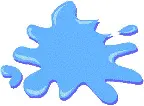| |        
Ingredients Of A Novel 
VARIOUS WRITERS' RULES  Write a draft. Then let it rest. -- Stephen King;Read a lot. -- King;Never use a long word when a short one will do. -- George Orwell;Never use the passive voice when you can use the active voice. -- Orwell;Know and understand your audience. -- Pierre Berton;Recycle and read the good stuff before you write. -- Berton;Honor the miraculousness of the ordinary. -- Andrew Morton;Good copy draft -- 10% -- King;Look at every word in a sentence and decide if they are really needed. If not, kill them. Be ruthless. -- Bob Cooper;Remember: writing doesn't love you. It doesn't care. Nevertheless, it can behave with remarkable generosity. Speak well of it, encourage others, pass it on. -- Al Kennedy;Basically, the writer, or any artist/creator, must create a world the reader wants to enter.;Write to a quota. The key is to figure out what you can produce, then commit to doing that, week in and week out.;Write/talk to one person, a friendly acquaintence, perhaps. You know them, but not especially well.
ALWAYS ASK How is this character feeling?;What are they thinking?;Why did they do or not do that?;What happens next?STRUCTUREAct I; Opening conflict;Protagonist shown in daily life, before the transformation;Opportunity for change;Resistance to the opportunity;Point of no return, opportunity acceptedAct II; Entering the new situation;Meeting friends, enemies, romance; transformative experiences;Problem brings them together;Problem drives them apart;Crisis hits!Act III; Terrible secret revealed or attack starts;All seems lost;Self-sacrifice or symbolic death;Final showdown;Conclusion -- wed or deadGENREPick one, preferably, but you can always combine them THEMEThe theme of a story is a lesson or message the story is trying to tell us. Some stories have only one theme or message. Other stories have many lessons or messages. PREMISECome up with one, such as "He was an expert on widgets and took it upon himself to rid the world of faulty widgets!" SETTING Where the protagonist starts out -- your story can stay here or move to other places.;The setting is the WHEN and WHERE of a story.CONFLICTContrary to what you would do in real life, CREATE PROBLEMS, LOTS OF THEM... with solutions. CHARACTERSThe characters are who the story is about. A good character description includes:; What the character looks like.;How they act;How they changeAnd all characters have relationships. The Protagonist; The main character of your story.;supporting, first tier;supporting, second tierThe Antagonist(s); The person or thing that gets between the main character and his or her goal.;hostile minor characters who function in making complications for heroMOTIVATIONSGoal (An important object); What does your main character want?;This object is very important to your main character and plays a crucial role in the story.;secondary character wants ;tertiary character wants BASIC PERSONALITIESMake a protagonist (or at least their goal) likeable; To make a protagonist likeable, even one who's not a model citizen, give him an inner conflict such as should he be serving a greater good or satisfying his own self-interest. The sacrifice your protagonist makes to forego his or her own selfish desires and indeed serve the greater good is what makes him or her likeable. PLOTThe plot is what happens in the story. Usually a character has a problem or conflict. The plot consists of the events that help the character solve or deal with a problem.; Introduce protagonist and setting;An important event. This will be a turning point in your story.;issues/problems;Point of tension, more conflict or problems;blind trails by which the hero is misled or confused;complicating circumstances;Effort to stop (or out-run, out-do, out-wit) antagonistQUESTIONS YOUR READERS ARE ASKING what happens next?;are all issues/conflicts (even the little ones) resolved?CLIMAX/RESOLUTION (solution) Seem to fail, then triumphant;Happy (or appropriate) outcome... but not before several twists and turns.
And don't forget the unspoken things like the moral of the story
New Rules for Writers -- Your Novel Blueprint -- Advice for Writing -- Writers Need Followers? -- Good Article About Storytelling -- Best and Worst Self-Publishing Sites -- Thoughts on Writing -- More Advice for Writers -- Ingredients of a Novel -- Lee Child Quote -- Elements of a Story -- Still More Advice for Writers
similar posts here ... and elsewhere Comments (We enjoy free speech. Try not to offend, but feel free to be offended.)Leave your own comment: edit || rebuild || hide || set image | |


